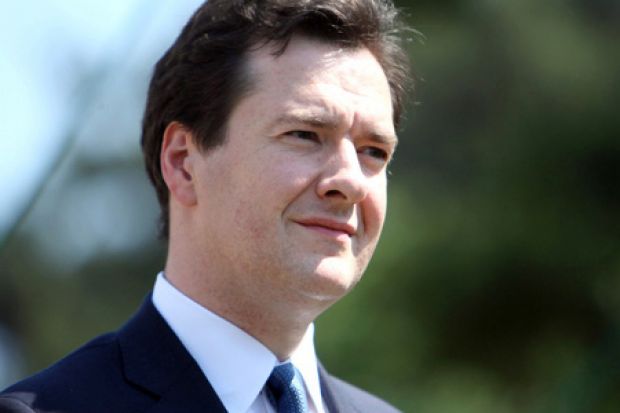The chancellor’s budget speech, delivered today, also confirmed further 1 per cent cuts to non-protected departmental spending in 2013-14 and 2014-15, and a bigger than expected total reduction in the 2015-16 spending review, meaning more reductions at the Department for Business Innovation and Skills.
Mr Osborne said in the speech that the coalition government’s “reform of schools, universities and apprenticeships is probably the single most important long-term economic policy we are pursuing”.
In the accompanying “red book” document published following Mr Osborne’s speech, there is a section dealing with VAT for for-profit HE providers.
It says: “At Budget 2012 the Government announced a review of the VAT treatment of university degree level education. Responses to the subsequent consultation on whether to extend the existing exemption to commercial entities supplying such education identified a number of issues with the options proposed.”
The document adds that the government has “listened” to responses to the consultation “and as a result will look to develop alternative options, including possible changes to the exemption for further education and will consult on these later in the year”.
It is unclear which government department had been driving the plans for a for-profit exemption, which would have allowed commercial providers not to charge VAT on tuition fees, just like universities.
HM Revenue and Customs carried out the consultation on the proposal. But David Willetts, the universities and science minister, appeared to have little knowledge of the plan when questioned about it by MPs on the Business Innovation and Skills Select Committee in July last year.
The new 2013-14 and 2014-15 cuts for BIS may mean the department looking for additional savings in what is its major area of expenditure, higher education.
The chancellor also said that the 2015-16 spending review would identify cuts of £11.5 billion, rather than £10 billion, meaning an additional hit for BIS, which is classed as a non-protected department.
Register to continue
Why register?
- Registration is free and only takes a moment
- Once registered, you can read 3 articles a month
- Sign up for our newsletter
Subscribe
Or subscribe for unlimited access to:
- Unlimited access to news, views, insights & reviews
- Digital editions
- Digital access to THE’s university and college rankings analysis
Already registered or a current subscriber? Login




